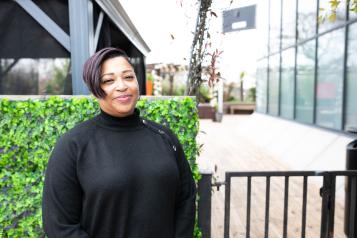Healthwatch Somerset reveals what Somerset residents are saying about health and care during COVID-19

It highlights common issues people have faced and how these have changed over time, and it identifies the challenges and achievements of a health and social care sector turned upside down by the pandemic.
Between April and September 2020, 271 Somerset residents shared 418 different comments about how their health and care had been affected by COVID-19, helping to identify where changes to services have worked well and where improvements could be made.
The majority of feedback was about GPs, followed by pharmacies, hospitals, dentists and mental health services. Feedback was also gathered about a range of other services including NHS 111, care homes, community services, emergency care, social care, and opticians. Several themes emerged.
Public understanding of the challenges faced by care providers: There was praise for the NHS and local organisations providing care and support to those most in need, however there was also a feeling of not wanting to burden the system.
Virtual healthcare: While some people appreciate the convenience and safety of virtual healthcare appointments and prescriptions, others find them inappropriate or inaccessible, for example due to lack of internet or disability access issues. This creates health inequalities – one size does not fit all.
Pharmacies: There was appreciation for the service received by pharmacies in maintaining medication levels, however long waits to collect prescriptions at the start of lockdown were reported.
Dental care: An uncertainty about when dental treatment will resume and the lack of clear information about where to access treatment in an emergency has created concerns.
Hospitals: People were happy to continue to use hospital services through lockdown and feel happy to attend face to face appointments.
Community support: Voluntary and community schemes such as the Village Agents have been a lifeline for those isolating at home and needing support.
We shared real-time feedback with local health and social care providers throughout the pandemic to help them respond quickly and effectively. This new report, which provides feedback over a sustained period, will help health and care professionals understand how to deliver the care people need now, as they manage a rise in COVID-19 cases while trying to catch up with a backlog of treatments, and also in the future as new models of care are developed.
Healthwatch Somerset Manager, Hannah Gray, said: “This is a good and timely point to reflect on how COVID-19 has affected people’s experience of health and social care in Somerset, and the country. NHS and social care providers faced pressures like never before in the face of the pandemic. New and modified models of health and care delivery have been introduced; changes have worked better for some people than for others. It has never been more important that the voices of people who use health and social care services are heard. Our report will help services understand how to adapt and deliver effective care for everyone in these challenging and changing circumstances.”
Maria Heard, Somerset Commissioning Group, Incident Director Covid-19 & Programme Director, Fit for My Future, said: “We welcome the findings from this report and thank everyone at Healthwatch Somerset for their ongoing commitment to helping people in Somerset share their experience of NHS services. We are extremely heartened by the praise given to the NHS in the report, but clearly recognise the concerns and frustrations that many people have shared. The report provides us with insightful information that we will carefully consider alongside the feedback that we have received from our own Citizen’s Panel, from our voluntary and community partners and from a south west regional COVID-19 survey. We will pull together the key themes from all the feedback and take these into consideration in our service planning for the future, both in the short term over the winter months and in the longer term.”
Read the full report: Accessing health and social care during COVID-19: A Somerset perspective

